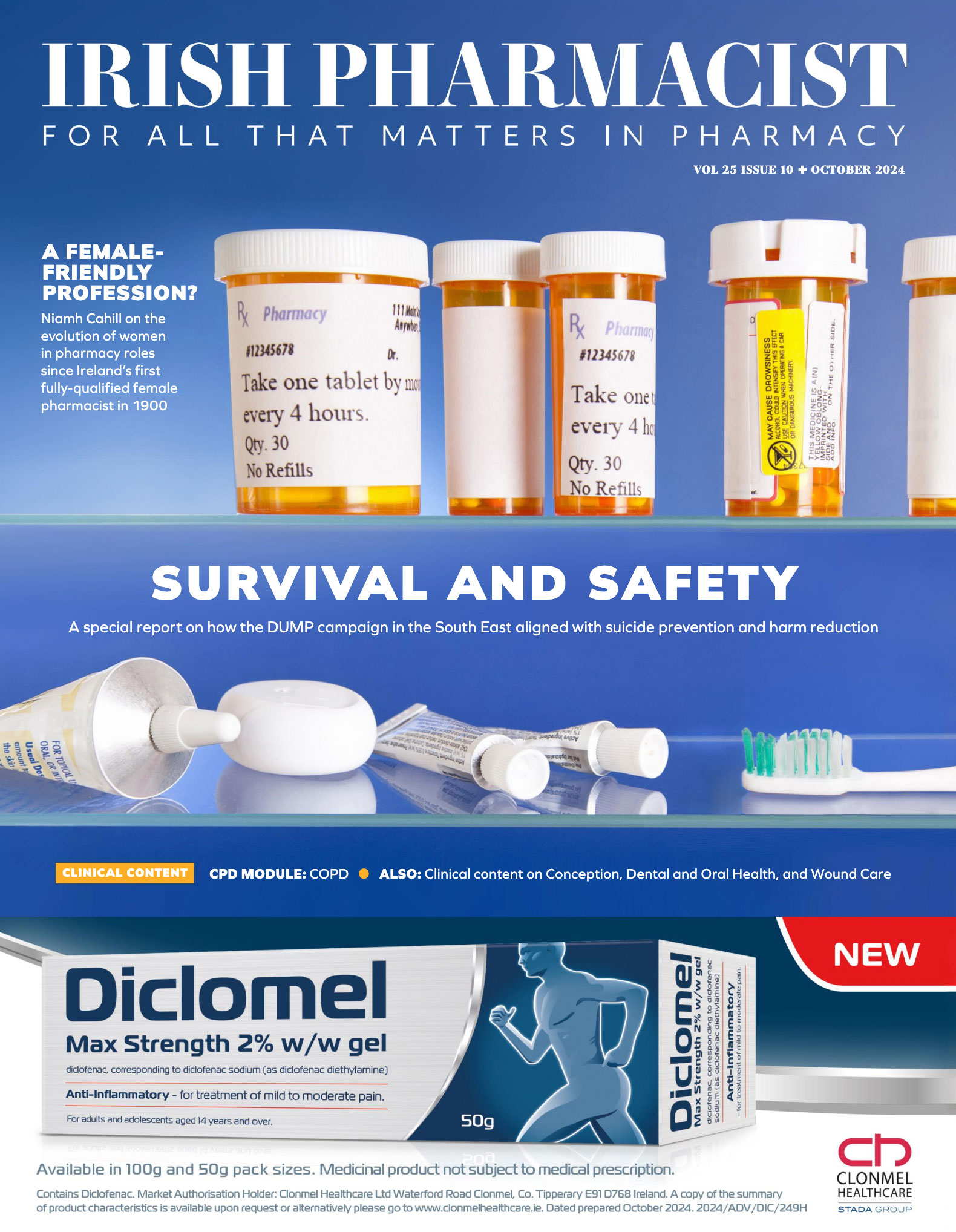Terry Maguire reflects on the pursuit of polypharmacy, a distinctly modern and increasing trend, and argues that we may not be using medicines in the best interests of public health
The winner in the Maguire Pharmacy ‘Most Daily Medicines’ competition is Martin, who comes in at a respectable 27 medicines and is comfortably ahead of second-placed Bridget, who has a mere 20. Bridget has severe mental health issues and is mostly house-bound, whereas Martin is a sprightly 54-year-old who bounces into the pharmacy each month with a mouth-wateringly thick book of prescriptions and for which I deliver two well-packed carrier bags of medicines.
And you think, ‘how did it get to this? How ill is a patient to merit 27 different medicines on a daily basis?’ Well, he suffers from myriad complaints. He has asthma, a cardiac condition, an endocrine problem, he suffers with anxiety, has GORD and his prostate is problematic. He also suffers from a number of adverse events from his medicines, which warrants prescribing of cyclizine, cetirizine and Gaviscon.
It is easy to add a medicine to a patient’s repeat list but seems almost impossible to remove it. For this reason, over a few years, a patient will see his or her daily cocktail expand to the point that most of the day is consumed with medicine-taking.
I have always been of the view that pharmacists’ true potential and our unique raison d’etre will have been attained when we are paid not to dispense medicines
In the UK, the number of people aged over 65 years taking five or more medicines has quadrupled over the past 20 years, from 12 per cent to 49 per cent. Polypharmacy, taking five or more medicines, has been identified as a problem a long time ago but was highlighted again recently by the King’s Fund, the UK healthcare think-tank, which is clear that we need to roll-back this trend. Of course, the objective is to ensure the right patient gets the right drug in the right dose at the right time, and for the right reason. This is Hepler and Strand’s Pharmaceutical Care but since its proposal and international acceptance in 1990, there has been little restraint on our pursuit of polypharmacy.
Medicines optimisation has been UK health policy for some years now and it is committed to ensuring patients get the best outcomes from their medicines, yet adverse events are the fourth-most common cause of premature death and the reason for 10 per cent of hospital admissions. We are clearly not using medicines in the best interests of public health.
I have always been of the view that pharmacists’ true potential and our unique raison d’etre will have been attained when we are paid not to dispense medicines. Most colleagues find this a difficult concept, but I am impressed with an emerging UK movement calling itself the ‘English De-prescribing Network’ (EDeN). This body of pharmacists, formed recently, are modelling themselves on similar networks in Canada and Australia, which have been active in this area for some years.
De-prescribing network pharmacists have worked in primary and secondary care, performing structured medicines reviews for years, but found it next to impossible to stop a medicine. Their plan is to make de-prescribing a part of day-to-day clinical practice.
My own limited experience in this area quickly identified significant resistance from patients who, due to a lack of understanding, see the removal of a medicine from their regimen as a risk rather than a benefit. That said, I have witnessed almost a miraculous health improvement in individuals following a two-week ‘drug holiday’.
Certain medicines, taken for extended periods, present particular risks to patient wellbeing. Anticholinergics are one category that we need to wean our elderly patients off. Proton pump inhibitors are nasty to the bone. Bisphosphonates damage too many oesophagi when they are taken beyond five years when no clinical benefit is derived. I could go on.
The EDeN have defined de-prescribing as: “A collaborative process with the patient or their carer to ensure the safe and effective withdrawal of medicines that are no longer appropriate, beneficial or wanted, guided by a patient-centred approach and shared decision-making.”
The criticism of de-prescribing is that it is really only another aspect of ‘medicines optimisation’ and that the term is too negative, therefore it will be antagonistic to patients. Well, it seems that we have been too positive and optimistic with medicines optimisation, which has failed, to date, to rationalise medicine prescribing and deliver better medicine outcomes. We are sleepwalking into a medicine crisis and there are suggestions that the fallback of the average life-term — 83 years in females and 80 years in males — is due to excessive and inappropriate medicine use. Antibiotic and opioid misuse are two clear examples of the significant problems caused by inappropriate prescribing, but I fully appreciate that we need to work hard to convince our patients of the need to control their voracious appetite for medicines.
I know Martin well and I have had many discussions with him, but I have found him extremely defensive of any attempt to modify or optimise his drug regimen. What I must never forget is that I am professionally responsible for any damage these drugs are doing to him and my professionalism must temper the commercial benefit of this patient to me. ?







